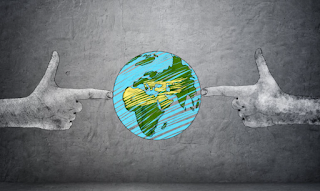When Will Politicians Take Climate Change Seriously? Analyzing Global Inaction and Future Prospects
WHO Resolution on Climate Change and Health
The World Health Assembly recently adopted its second resolution on climate change and health, the first in fifteen years. This follows last year’s COP meeting in Dubai, where the UNFCCC held its first health and climate day, convened health ministers, and developed a Declaration on Climate and Health.
Despite the obvious and well-documented catastrophic consequences of climate change on health, both the UN and WHO have been slow to act. This delay is likely due to the influence of national governments, many of which are reluctant to address serious climate- or health-related issues.
The WHO resolution acknowledges that climate change poses a major threat to both current and long-term health and wellbeing. It highlights the increasing frequency of extreme weather events, which negatively impact well-being, livelihoods, and physical and mental health. The resolution also notes that health systems contribute approximately 5% of global carbon emissions.
The most critical statement in the resolution is that any further delay in global action on adaptation and mitigation will miss a rapidly closing window of opportunity to secure a liveable and sustainable future for all.
Key Proposals of the WHO Resolution
The resolution, while non-binding, urges member states to:
- Conduct more health assessments and monitoring
- Develop plans to lower health services’ greenhouse gas emissions without compromising healthcare quality
- Promote cross-departmental collaboration
- Invest in climate adaptation
- Raise public awareness
- Promote research and development
Additionally, it requests the WHO Director-General to develop a plan of action on climate change and health and a Roadmap to Net Zero by 2030.
Missing Elements
The resolution lacks any mention of the role of fossil fuels in causing severe public health threats and the need for a just transition to renewable energy.
COVID-19's Impact on Life Expectancy
The WHO reports that global average life expectancy at birth declined by 1.7 years during the first two years of the COVID-19 pandemic, reversing decades of improvement. This highlights the severe impact of the pandemic on global health.
Freshwater Fish Conservation Efforts
The SHOAL initiative aims to protect the world’s freshwater fish, which receive less conservation attention than marine fish. Freshwater ecosystems cover less than 1% of Earth’s surface but are home to 12% of known species. Unfortunately, there has been an 84% decline in freshwater population sizes since 1970, and a quarter of freshwater fish species are threatened with extinction.
The SHOAL initiative supports local organizations to implement conservation actions, targeting the most threatened freshwater fish species and their habitats.
The Urgency of Climate Action
Joëlle Gergis, in her recent article, emphasizes the urgency of taking immediate action on climate change. She argues that what happens every single month during the next few years will be crucial in determining how quickly we can reduce carbon emissions to achieve the Paris Agreement's temperature goals.
Gergis stresses that climate scientists are no longer sugarcoating the bad news and are calling for the public to feel an appropriate level of alarm and outrage. She labels the failure to shut down the fossil fuel industry in time as an intergenerational crime against humanity.
Frequently Asked Questions (FAQs)
Q1: What is the significance of the WHO resolution on climate change and health? A1: The WHO resolution acknowledges climate change as a major threat to global health and urges member states to take concerted action to address the health impacts of climate change.
Q2: How has COVID-19 affected global life expectancy? A2: The COVID-19 pandemic caused a decline in global average life expectancy at birth by 1.7 years during its first two years, reversing decades of improvement.
Q3: What is the SHOAL initiative? A3: The SHOAL initiative aims to protect the world's freshwater fish by supporting local conservation efforts and targeting the most threatened species and their habitats.
Q4: What is Joëlle Gergis's stance on climate action urgency? A4: Joëlle Gergis emphasizes the critical need for immediate and significant action to reduce carbon emissions, arguing that continued delay will have catastrophic consequences for future generations.
Q5: What are the main proposals of the WHO resolution on climate change and health? A5: The resolution urges member states to conduct health assessments, develop plans to reduce health services' greenhouse gas emissions, promote collaboration, invest in climate adaptation, raise public awareness, and promote research and development.
- #ClimateChange
- #HealthAndClimate
- #UrgentAction
- #RenewableEnergy
- #EnvironmentalHealth

